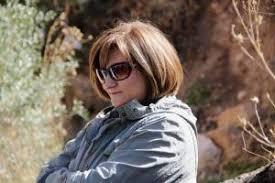Author: Nune Movsisyan
Translator: Yura Ganjalyan
Working on short and long term educational projects learners gain new knowledge and skills. After having been given different tasks they form working groups and organize project work in class or online at home. Project work is completed by presenting final products in the form of videos, power point presentations, assimilation of computer programs, attempts of research work and so on. The project work process is controlled by the teacher who observes the work and takes part in it in class or online. The project final products are published in the subsection “Project” of mskh.am, the school sub website, and the learners’ blogs.
Having last year’s initial experience, this year the project “Victor Hambartsumyan” was realized exclusively by using blogs. We did it with blogs, because when doing project work, blogs as educational tools, are very convenient: the whole process of work and the final result are visible and transparent in a complete set.
In the process of project work I had to clarify the demands for the learner’s blog running methods. Here they are:
The author’s point of view is visible; the content of each blog entry is complete and it is often refreshed.
The blog articles are as literate as possible; there should not be rough spelling and punctuation mistakes, the texts are lack of any punctuation marks which are not typical to the Armenian language and of various useless Internet symbols.
The learners should keep the Internet etiquette rules and author rights.
The demands for the project
A project should have:
A theme and a set of theme related questions;
The stages of project work (preliminary planning, plan of actions, dates, current reports), the deadline of project work;
Expected final result (publicism, video film, a handbook of teaching materials, a package of electronic materials, computer data base related to the theme, an article, presentation)
When we were carrying on the project, it turned out that we have to clarify the demands for the learners’ research work.
Here they are:
Text analyses, content discussion, summarizing the conclusion, justifying the speech, presence of creative thinking;
The use of specialized dictionaries, popular science and encyclopedic literature in Armenian and foreign language websites, comparing different texts related to the same topic and discussing their differences, an attempt to make a summary and conclusion.
How to begin the project
The project begins with stimulation of learners’ motivation. The learners are given a chance to feel what a real working team is. Any idea expressed by each learner is written down and the teacher-student or student-student dialogue is of utmost importance at this stage.
Taking into account the learner’s opinion is a mandatory principle. The teacher and learners work according to the jointly compiled and adopted working regulations. Task distribution should be done taking into account the participants’ preferences and capabilities.
The preliminary project planning is done by the teacher- supervisor. The teacher-supervisor also provides the learners with information for scaffold thinking, directs the learners work, gives some useful Internet links, book names and other necessary initial information, watches the process of project work and takes part in it as a supervisor up to the stage of making the final product.
Teachers of different school subjects provide the learners with specialized advice, help to search for reference literature, help to overcome difficulties with the given specialty and transfer appropriate skills. For example, while carrying on the project “Victor Hambartsumyan, learners of Grade 9.2 Erik and Zaven had to turn to Ashot Tigranyan for advice when they were given a task to view Hambartsumyan’s “Will” as a legal document.
Project work also bears some excitement as being engaged in group work learners get to know each other better, try to be helpful to each other, make friends, evaluate friendship and realize its advantages.
The first stage of project work
Working groups are formed. There takes place distribution of tasks among the working group members. Each group has a leader who coordinates the others’ work. To control the process of project work a working timetable is formed with expected intermediate results.
- The demands for the intermediate results are defined.
- Overcoming the difficulties in the process of project work becomes the key objective of working groups
The second stage of project work
- While carrying on project research work is done
- Presentation of project result (the result should have a social value)
- Evaluation of work
- Matching the results with the initial project demands
The third stage of project work
- The project is supposed to be looked over
- Discussion of spotted drawbacks and the supervisor’s remarks and making appropriate changes
Presentation of the project work
The learners should be able to introduce themselves and present their work:
- To give a brief description of their work: what problem has been set, why they have chosen that theme, what the result is, what the effectiveness of the project is
- To speak about the difficulties and support which they had during the project process, to justify what they consider to be ineffective and what they consider to be useful in their work
- To express their attitude towards usefulness in joining in the project work, what they can do better after project work, what project skills can have further application
In the result of real project work learners should have achievements creating tangible results together.
In the result of project work the teacher with his/her learners creates teaching materials, tasks, data base of questionnaires, guidebooks, educational media packages, video films publishing them in blogs to be accessible for everybody.

